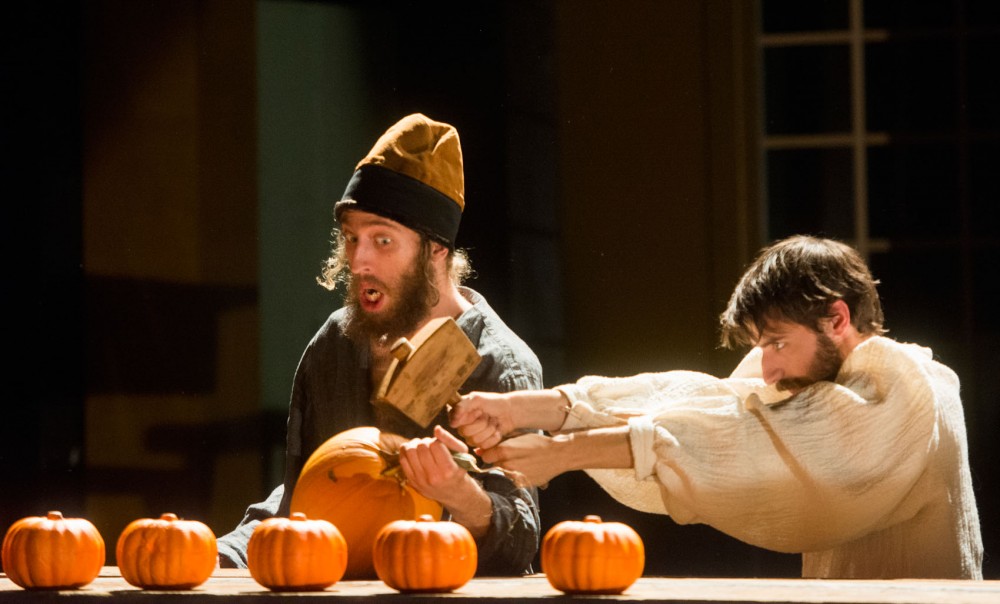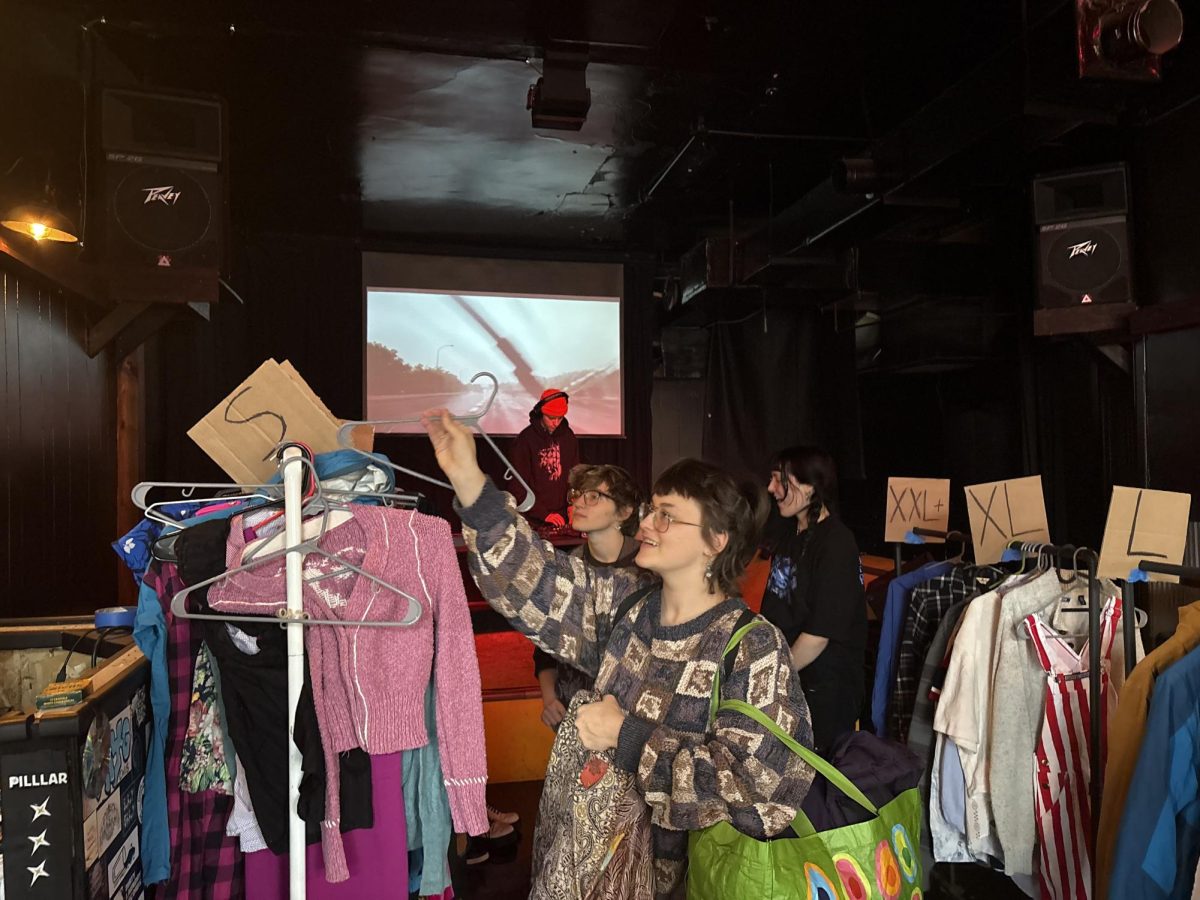“World” is something of a theater buzzword. Every play is supposed to create a unique one, but it’s rare for an audience to see something truly distinctive.
For director Steve Busa, “Ich, Kürbisgeist” presented an opportunity to make that rarity happen.
“All of the preconditions that you bring into the theater with you are really challenged. It doesn’t follow the linear order of things,” he said.
Sibyl Kempson’s play is relentlessly non-linear, featuring moments in which the time-space continuum tears itself in half.
“Ich, Kürbisgeist,” which means “I, Pumpkin Ghost,” follows Tymbl, a young girl who lives in a hamlet that subsists on pumpkin farming. We never know the exact location of the humble village except for a small clue when she introduces it: “Whr I crmt frm, it’s an oold, oold woods.”
Did that quote make you do a double take? Kempson’s play is written in its own dialect — a mixture of Old English and invented words.
“It’s a bunch of different languages slammed together — it looks weirder on the page than it does said out loud. The words seem strange, but familiar,” actor and sound designer Skyler Nowinski said.
Soon into the play, we learn that everyone talks like this. Tymbl is joined by the Ooldstres, elders who tell us the mythology of the culture — spinning stories about the peculiar history of these people.
The folk tales are time-bending and occasionally violent. There’s a lot about deadly curses and the Kürbisgeist’s consequences for those who smash pumpkins.
It’s not all an oral history, though. These stories trigger a number of disturbing events that involve witches, puritanical time travelers and the revenge of one pissed-off pumpkin.
Nowinski was taken aback when he first read the play.
“The script is intimidating,” he said. He’s right — the formatting is anything but kosher and there are stage directions like, ‘A flash lightnung revealun all parallels for one second.’”*********
This is what gives “Kürbisgeist” its unique spirit. Kempson’s spooky, rural universe allows an ensemble to play around with crafting the culture.
“The structure creates conditions — it doesn’t describe itself to you, but allows you to experience it,” Busa said. “For example, you see these people burst into folk song and dance. It’s not built to push along a narrative, but to show another aspect of their society.”
The show’s quirks make it challenging in ways that other plays aren’t.
“You can’t rely on letting the words be the power,” Busa said. “The acting and situations have to have the power.”
When it came to staging, Busa said, the time warp was particularly interesting. Instead of using media and projections to simulate the supernatural moments in “Kürbisgeist,” Busa turned to choreography.
“It’s all about how the actors move through the space and how the lights work with them,” he said.
He also turned Red Eye’s space into a barn, covered with real pumpkins and hay. The design is intended to completely immerse the audience.
While the play may seem inaccessible to some, Nowinski and Busa said that letting go of notions about what theater ought to be is key to enjoying the show. It’s all about strapping in to the ride with an open mind, because the Kürbisgeist may not give you another option.
What: “Ich, Kürbisgeist”
When: Oct. 11-27, 8 p.m., Thursday-Saturday; 7 p.m., Sunday-Monday
Where: Red Eye Theater, 15 West 14th St., Minneapolis
Cost: $8-30














